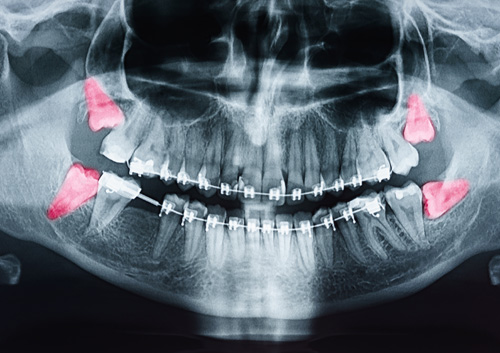For many people, wisdom teeth become a source of discomfort or even pain at some point. These third molars, which typically emerge in the late teens or early twenties, can cause significant dental issues when they don’t align correctly or become impacted. Knowing when it’s time to have them removed is crucial to avoiding complications that could lead to more serious oral health problems. There are several key signs that indicate you might need to have your wisdom teeth removed, and addressing these signs early on can help you prevent further discomfort or damage to your mouth.
At Union City Oral Surgery Group, we understand the importance of catching the warning signs of problematic wisdom teeth before they lead to more severe issues. Our team is dedicated to providing skilled care that prioritizes your comfort and well-being. If you’re experiencing any of the symptoms discussed below, we encourage you to seek professional advice. Removing your wisdom teeth early can prevent unnecessary complications and protect your long-term oral health.
Pain and Discomfort in the Back of Your Mouth
One of the most common signs you may need your wisdom teeth removed is persistent pain or discomfort in the back of your mouth. This pain often occurs as the wisdom teeth begin to emerge and press against neighboring teeth, causing irritation or crowding. If left unchecked, this discomfort can worsen over time as the wisdom teeth push against other molars, leading to misalignment and a need for orthodontic care.
In some cases, the pain may be more intermittent, only surfacing when the teeth are trying to break through the gums. However, if the pain becomes constant or severe, it is a strong indication your wisdom teeth may be impacted, meaning they are trapped under the gums or bone. Impacted teeth can lead to infections, cysts, or other complications if not addressed.
Additionally, swelling around the gums at the back of your mouth can accompany the pain, signaling that the wisdom teeth are struggling to erupt properly. If you notice persistent swelling, redness, or tenderness around your molars, it’s time to consult with an oral surgeon to discuss whether removal is necessary.
Crowding and Shifting of Other Teeth
Even if your wisdom teeth aren’t causing immediate pain, they can still lead to long-term dental issues by crowding or shifting other teeth in your mouth. Wisdom teeth often don’t have enough room to grow in properly, which forces them to push against surrounding teeth. This pressure can cause misalignment, which may lead to the need for braces or other orthodontic treatments to correct the shifting.
Crowding isn’t just a cosmetic concern; it can also make maintaining good oral hygiene more difficult. When teeth are crowded, it becomes harder to clean between them, increasing the risk of plaque buildup, tooth decay, and gum disease. If your dentist or orthodontist has noticed your teeth are shifting or becoming more crowded, it might be time to consider having your wisdom teeth evaluated.
Furthermore, wisdom teeth can also affect the position of your bite. As the third molars push against other teeth, they can create imbalances in how your teeth align when you bite down. This misalignment can lead to discomfort when chewing or even cause jaw pain over time.
Repeated Infections and Gum Disease
Another significant sign your wisdom teeth may need to be removed is recurring infections around the teeth, often due to a condition known as pericoronitis. This happens when the gums surrounding a partially erupted wisdom tooth become inflamed and infected, leading to pain, swelling, and difficulty chewing. If not treated, this infection can spread to other areas of the mouth, leading to more serious health concerns.
The position of wisdom teeth at the very back of your mouth makes them particularly hard to clean, which increases the risk of bacteria accumulating around them. As a result, even if you practice good oral hygiene, it can be challenging to prevent infections from developing. If you find yourself dealing with frequent gum infections, your wisdom teeth could be the root cause.
In addition to infections, the difficulty in cleaning wisdom teeth can lead to an increased risk of gum disease. This can manifest as persistent bad breath, bleeding gums, or tenderness when you brush or floss near the affected area. If you are experiencing any of these symptoms regularly, it is a strong indication your wisdom teeth are compromising your oral health and should be removed to prevent further damage.
Is It Time to Contact Union City Oral Surgery Group?
If you’re noticing any of the signs above, it might be time to consider wisdom teeth removal. At Union City, we prioritize your comfort and health, offering state-of-the-art treatments that ensure a smooth procedure and recovery. With over 25 years of experience, Dr. Nancy Herbst and our dedicated team are here to guide you through every step of the process. We provide advanced imaging and thorough evaluations to determine if wisdom teeth extraction is necessary in your case.
At Union City, we don’t just treat your symptoms—we aim to prevent long-term issues by offering expert care tailored to your specific needs. Whether you’re dealing with pain, crowding, or recurrent infections, our team is here to help. Call us today at (201) 601-9262 or use our contact form to schedule your consultation.


